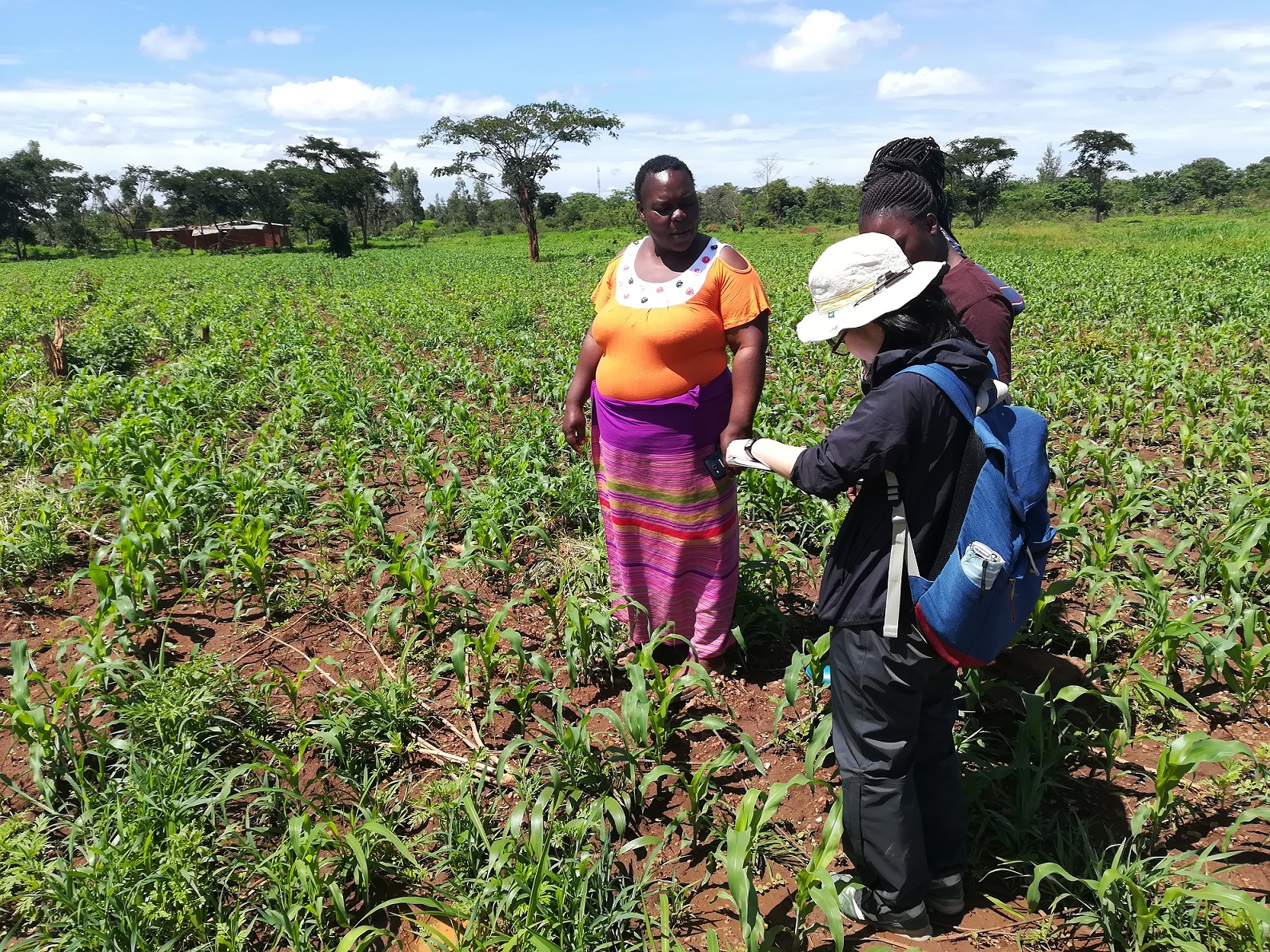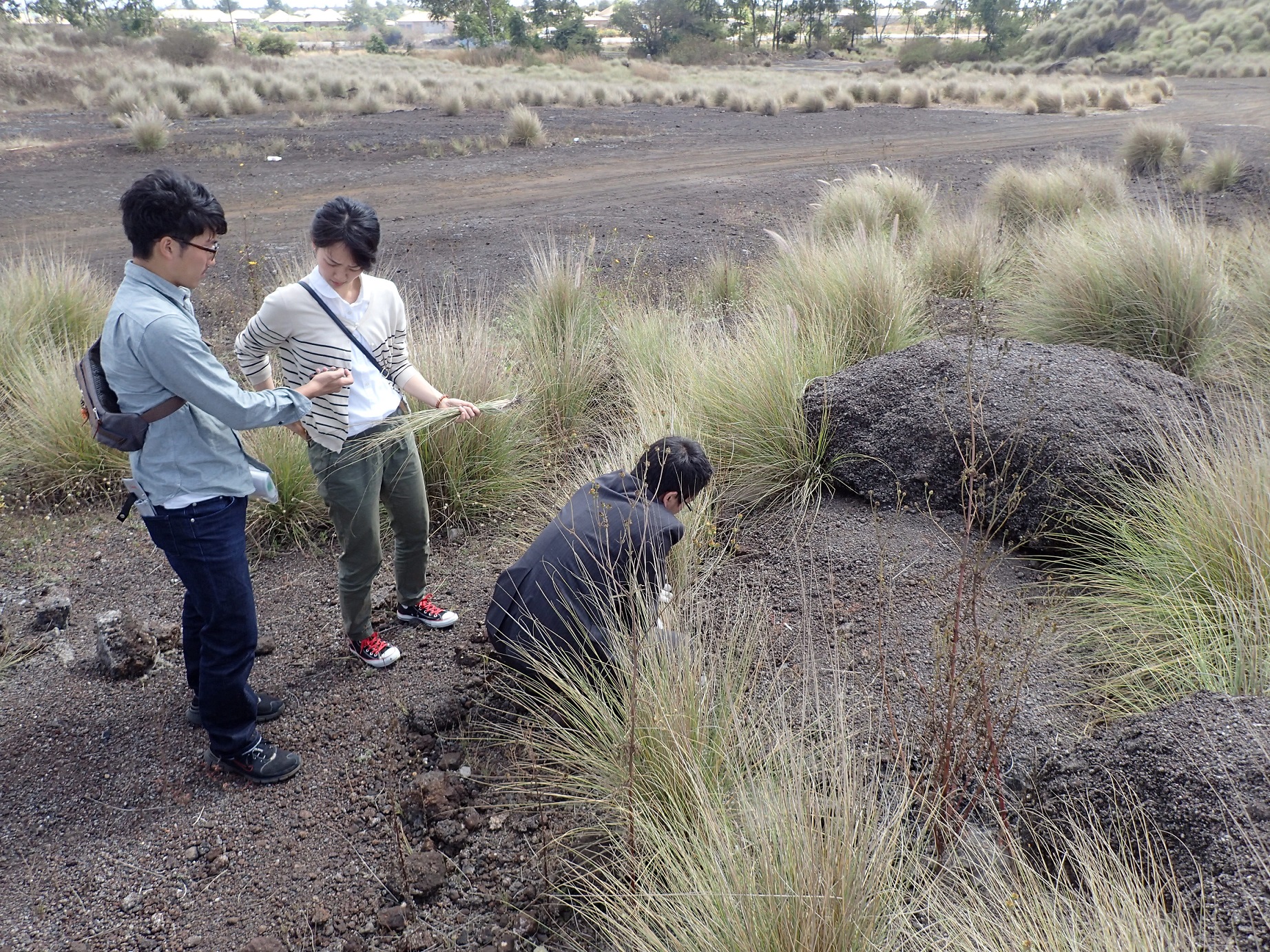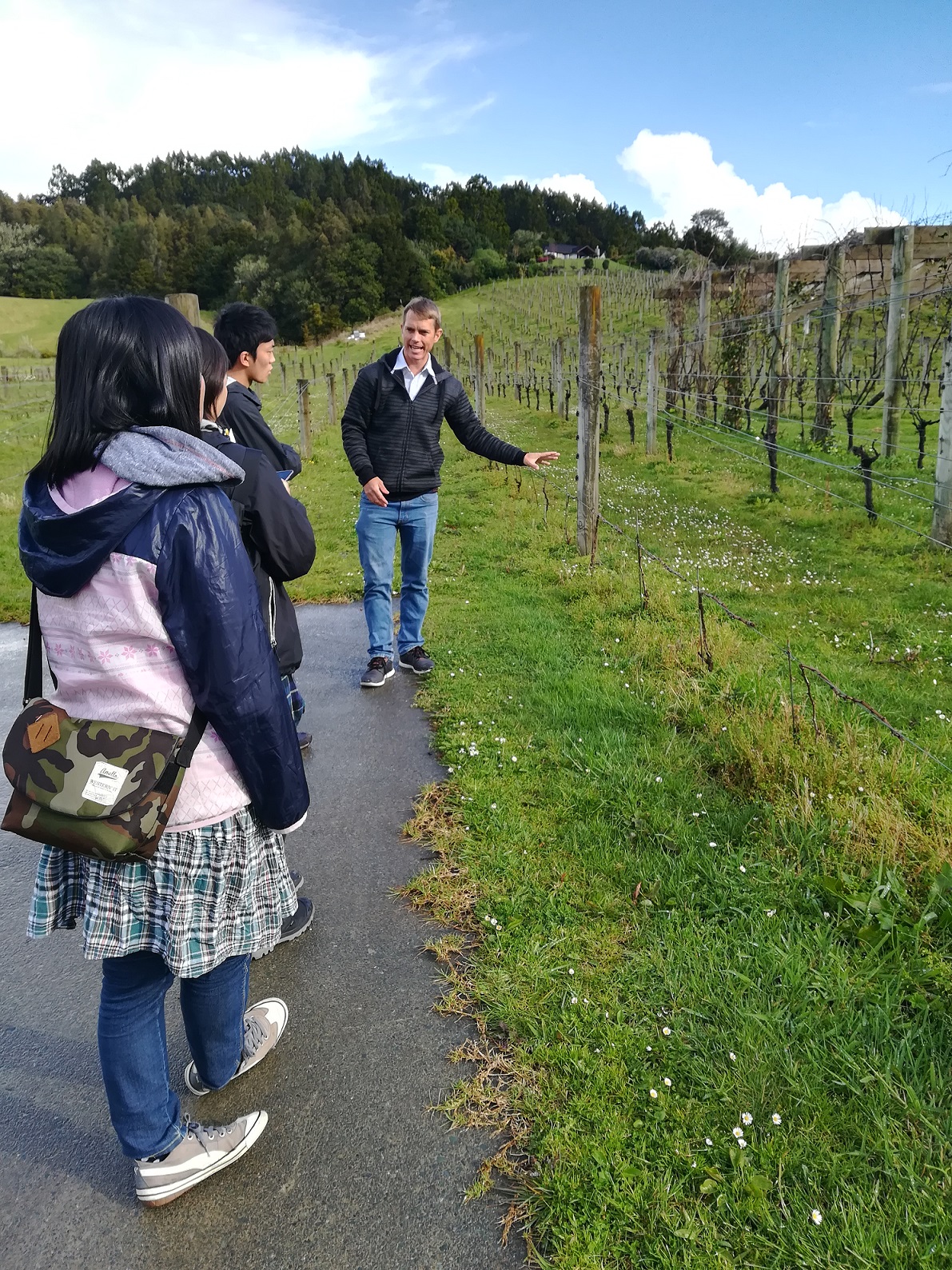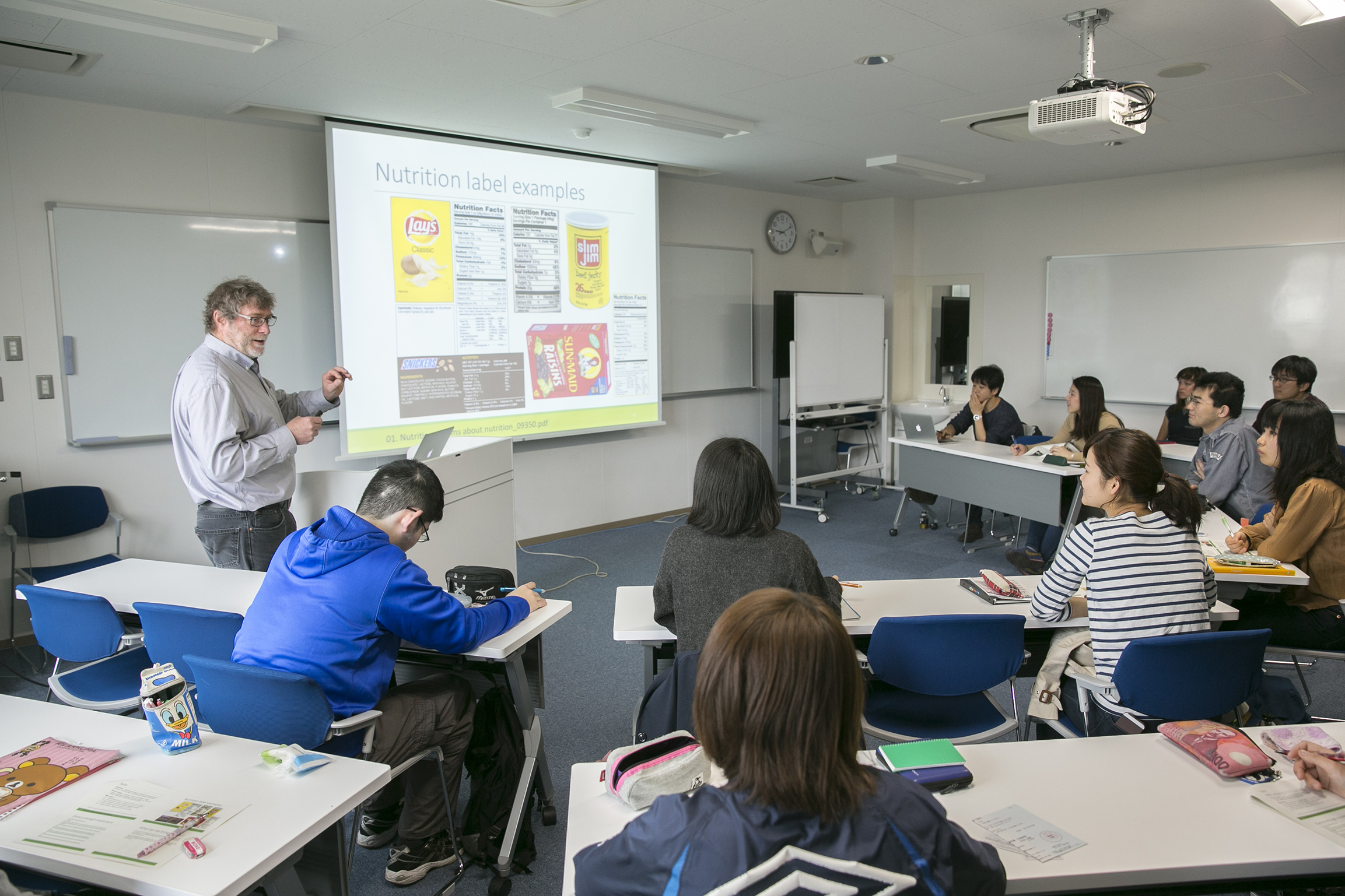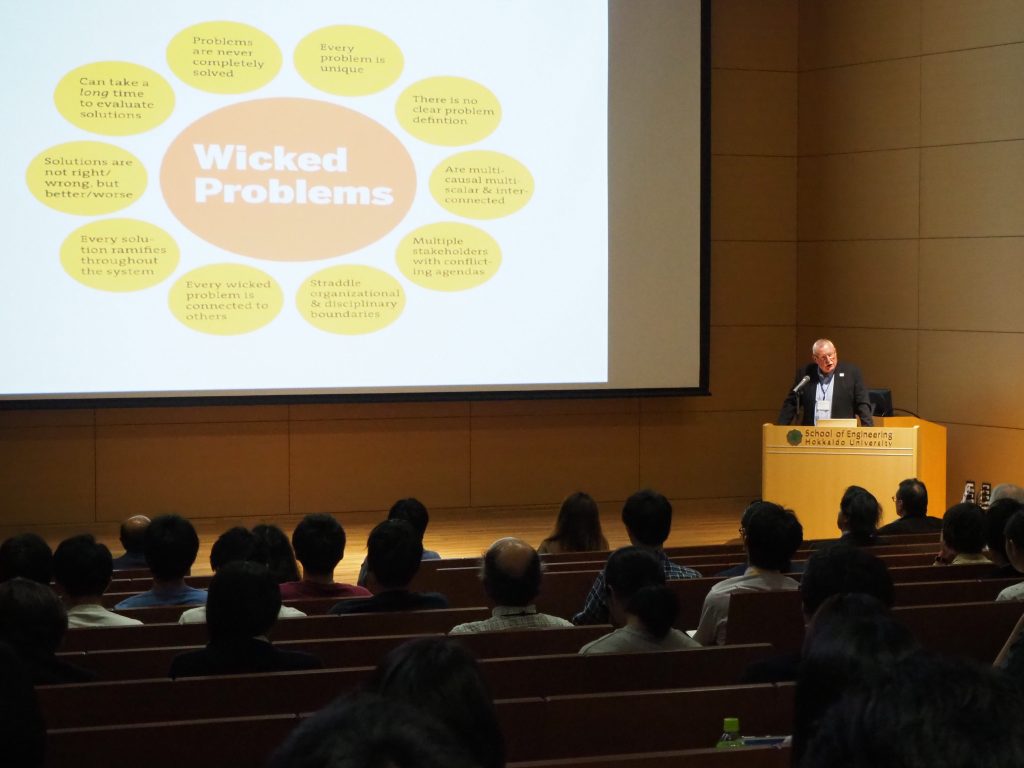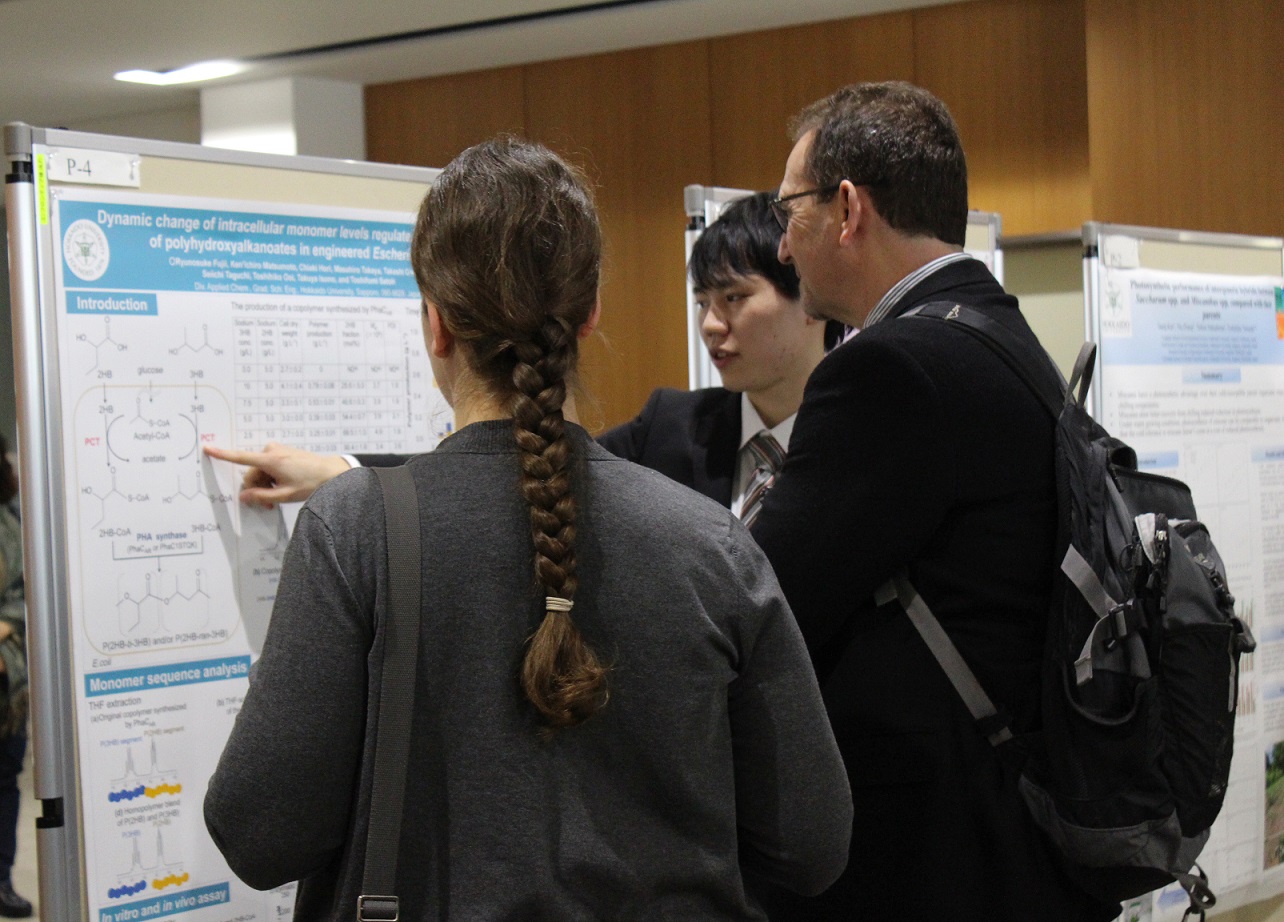Challenge to the problems of food, land and water resources expanding on a global scale
University News | January 05, 2022
This article was published in the Autumn 2021 issue of Litterae Populi. The full issue can be found here.
The Global Center for Food, Land and Water Resources (GCF), the Research Faculty of Agriculture invites top researchers from around the world to work on joint research projects. The GCF also fosters future global leaders by using the fruits of these research projects in graduate education.
The world population is forecast to exceed nine billion by 2050 due to the unprecedented population explosion. In addition, world food production is on the verge of collapse due to climate change that is intensifying on a global scale. Solving the problems related to food resources is so important that the UN adopted “Zero Hunger” as the second Sustainable Development Goal (SDG2).
In April 2020, the Global Center for Food, Land and Water Resources (GCF) was established in the Research Faculty of Agriculture. The GCF is a research organization that tackles problems involving food, land, and water resources around the world, as it has carried over the functions of the Global Station for Food, Land and Water Resources established in 2015 in Hokkaido University’s Global Institution for Collaborative Research and Education (GI-CoRE)1. The GCF also cultivates human resources by using the fruits of its research projects in the programs of the Graduate School of Global Food Resources, established in 2017.
A global center for advanced collaborative research
Professor Masashi Takahashi, the director of the GCF and the dean of the Graduate School of Global Food Resources, describes the GCF as an organization that has developed as a center of international joint research to comprehensively address diverse food-related problems. “Our goal is to develop the next generation of leading human resources through our multifaceted research approach and educational programs that integrate the humanities and the sciences,” says Director Takahashi. The Center aims to develop “glocal” (coined word covering “global” and “local”) leaders who grasp food issues from various viewpoints—including those of production, environment, management, and economy—and who contribute to local communities by taking global perspectives. Hokkaido University ranked first in Japan for two consecutive years (2020–2021) in the Times Higher Education (THE) University Impact Rankings2, which assess each university’s contribution to society using the framework of the Sustainable Development Goals (SDGs). The University ranked particularly high for SDG2, to which the GCF’s efforts have made a significant contribution.
The GCF focuses on problems involving land and marine food resources pertaining primarily to agriculture, animal husbandry, and fisheries. Here, intensive studies and collaborations are under way on the topics including factors affecting crop yields, measures against the depletion of fisheries resources caused by overfishing, and marine resource management. As an example, in cooperation with the Japan International Cooperation Agency (JICA), the GCF will soon launch a project to increase food production by combining agriculture with animal husbandry. Furthermore, the GCF covers a wide array of research areas, including environmental assessments involving bioenergy utilization, nitrogen cycle in soil, and marine bioplastic pollution. Not only do the GCF research projects involve food production (technology), processing, preservation, and distribution, but they are also related to national policies concerning food safety, environmental problems, health problems of producers and consumers, economic conditions, and national food security. To tackle these problems, researchers need to know and cover not only geographical characteristics, but also political, economic, ethnic, cultural, historical, ideological, and other aspects. For this reason, the GCF promotes joint research with overseas researchers while stepping up interdisciplinary education that integrates the humanities and sciences with the cooperation of relevant departments on campus. This means students can study sciences (e.g., the sciences of agriculture, engineering, fisheries, environment, and health and hygiene) and the humanities (e.g., political science, economics, and pedagogy) simultaneously. The GCF faculty consists of 10 Hokkaido University faculty members and 15 overseas instructors. International faculty members from various countries are engaged in research in their areas of specialization, and all faculty members at the GCF teach in the Graduate School of Global Food Resources.
A graduate school offering practical education programs
The Graduate School of Global Food Resources advocates the development of T-shaped skills to help students broaden and deepen their expertise. All lectures are driven in English. “Some undergrads who think about entering the school hesitate when they learn about the lectures being given in English, but they will increase their English ability once enrolled so they don’t need to worry about it,” says Professor Takashi Inoue, the previous director of the GCF. He states that the number of applicants has consistently exceeded the quota since the school’s establishment, and they feel sorry that they have been unable to accept all of them. Director Takahashi emphasizes the advantages of learning firsthand about leading edge research overseas. “We welcome the students who aspire to help solve food problems,” he says. He hopes such students will broaden their perspectives by learning that there are many ways of contributing to solutions to food resource problems.
In the curriculum, the overseas fieldwork courses Wandervogel Study in Global Food Resources I and II are of particular interest among students. They provide students with an opportunity for a tour of observations and practical training for about two weeks. Wandervogel Study I focuses on agriculture, environment, and communities in Denmark, whereas Wandervogel Study II focuses on community development in Myanmar. Students observe actual work, conditions of farm management, mechanization, irrigation, and other onsite observation points, and make presentations of the result. Although the COVID-19 pandemic has suspended the overseas fieldwork for the past two years, Director Takahashi confidently says, “Overseas fieldwork enables students to visit countries experiencing food resources problems and to recognize and understand such problems onsite. This practical education is what sets our graduate school apart from other schools.”
Since the Graduate School of Global Food Resources (master course) was founded in 2017, and the doctoral course has been newly opened in 2019, students who have entered the doctoral course will soon earn PhD degrees.
It is envisaged that administrative officials and the like in developing countries could also receive doctorates from the school so that they would play active roles in their countries. In addition to going into civil service, graduates of the school have found employment in a wide range of industries, including at food-related businesses, water resource-related companies, consultancies, and trading companies. “I hope our graduates will build an international career and demonstrate their abilities,” says Director Takahashi. Expectations are high for personnel with cosmopolitan points of view and abilities.
Activities of talented personnel cultivated jointly by the GCF and the Graduate School of Global Food Resources will lead to the resolution of global food problems.
The GCF holds international symposiums to disseminate research results to the world. Once the COVID-19 pandemic clouds clear, the global green recovery of food resources is expected. Last year’s symposium, entitled ‘From COVID-19,” centered on themes of social science, such as food policy and hunger.
These symposiums are also open to students at the Graduate School of Global Food Resources. Prizes are awarded to students who make outstanding presentations in a student competition, an opportunity where they can demonstrate the skills they have honed in class.
1The Global Institution for Collaborative Research and Education (GI-CoRE) is a faculty organization under the direct control of the University President that brings together world-class teachers from around the world and within the University. It aims to promote international collaborative research and education that leverage the University’s strengths and distinctive features, and to provide support for international collaborative research and education being furthered independently by faculties and schools.
2The University Impact Rankings have been released annually since 2019 by Times Higher Education (THE), a UK-based magazine that reports on news and issues related to higher education. In 2020, Hokkaido University took sole possession of the number one spot in Japan and ranked 76th globally. In 2021, the University shared the number one slot with other institutions in Japan and ranked between 101st and 200th globally. In the rankings by SDGs, the University ranked 15th globally in SDG2 (2021).
This article was published in the Autumn 2021 issue of Litterae Populi. The full issue can be found here.

